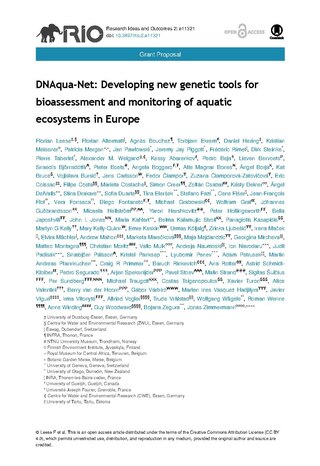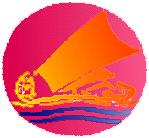IAAS was established in a decade in which nations all over the world were still recovering from the harsh devastation and suffering resulting from the Second World War. However, young people strongly fostered hope for progress, peace and stability. Students in the field of agriculture decided to come together and create a new international student platform by establishing IAAS more than half a century ago 1957 in Tunis, the same year when the Treaty of Rome has been signed to establish the European Community.
In this decade, students from all disciplines started to acknowledge their role as agents of change in society and decided to come together to share values. They realized that only by sharing diversity, they could really cooperate to build a better world, a world in peace, harmony, and freedom. Thus AIESEC, IAESTE, IFMSA, IVSA and IAAS have been established in less than one decade.
Year of establishment
1957 was the real beginning of the IAAS, which was then called AIEA (Association Internationale des Etudiants en Agriculture) and had French as the working language.
Independent from the decisions made during the international meeting in Paris, the Students council from the Netherlands (NSR) also planned to organize an international seminar on agriculture from 22 till 29 June 1957. Around December 1956, NSR (Netherlands) and UGET (Tunis) got to know about each other's plans and this caused a conflict. UGET did not like the idea of having two international seminars so close to each other. However, several careful and diplomatic dialogues per mail, and a meeting in Leiden (the Netherlands) on 15–16 March 1957, resulted in cooperation and a tight friendship between Tahar Belkhodja (president of UGET) and R. van den Berg (president of NSR). The NSR decided to cancel its congress in Wageningen in favor of the one in Tunis and to cooperate intensively with UGET. It seems to be just an anecdote, but there are reasons to believe that this cooperation between The Netherlands and Tunisia was crucial for the continuity of IAAS in the first years. When the Dutch canceled their seminar, they asked all participants to come to the seminar in Tunis instead. This seminar turned out to be the founding World Congress of IAAS and Germany, Finland, The Netherlands, Norway, Romania, Switzerland, Czechoslovakia and of course Tunisia were the participating countries. A few other countries attended the congress as observers. Mr. Tahar Belkhodge (Tunisia) was elected as President and Mr. Fehr (France) was elected as Secretary General.
Also, the Dutch students were well prepared to organize a seminar in the Netherlands in 1958, which became the second world congress of IAAS.
Chronology of the annual World Congresses
New members: Belgium, Denmark, France and Sweden
Special event: The exchange did exist in two parts: The exchange weeks and training that were organized by IAESTE.
- 1959 3rd Congress in Vollebek (Norway)
- 1960 4th Congress in Rehovot (Israel); Topic: Intensive Agriculture
New member country: Israel
- 1961 5th Congress in Bern (Switzerland)
New member countries: Austria, Great Britain, Nigeria, Portugal
- 1962 6th Congress in Uppsala (Sweden); Topic: Agriculture and Cooperation
New member country: Yugoslavia
Special event: Executive committee of the association formed by the president, vice president and secretary general, working in headquarters in Leuven (Belgium), also Control Committee formed by four members and national representatives elected
- 1963 7th Congress in Brussels (Belgium); Topic: Belgian Agriculture
New member countries: Italy and Spain
Special event: the first issue of the JOINT, an IAAS Magazine edited by the Secretary General and a board; few issues every year
- 1964 8th Congress in Italy; didn't take place due to difficulties in the Italian Student Union
- 1965 9th Congress in Leeds (England)
- 1966 10th Congress in Vienna (Austria); Topic: Austrian Agriculture
- 1967 11th Congress in Rehovot (Israel); Topic: Agriculture in Israel
- 1968 12th Congress in Helsinki (Finland); Topic: Farming and Forestry in cooperation in Finland
New member country: Ireland
- 1969 13th Congress in Zurich (Switzerland); Topic: Special Problems in Swiss Agriculture
Special Event: first time a Responsible Meeting held at half term in Wageningen
- 1970 14th Congress in Denmark; Topic: Pollution Problems
- 1971 15th Congress in Stuttgart and Kiel (Germany); Topic: Higher Education in Agriculture
- 1972 16th Congress Oxford (Great Britain); Topic: The changing role of Agriculture in the developed countries
New members: Hungary and Poland
- 1973 17th Congress in Ghent (Belgium); Theme: Social aspects of Agriculture
New country: India
- 1974 18th Congress in Uppsala (Sweden); Topic: Underemployment - The Challenge for Rural development
- 1975 19th Congress in Langnau (Switzerland); Topic: Langnau in the Emmental Switzerland
- 1976 20th Congress in Rehovot (Israel); Topic: Agriculture in the Desert
Special event: Development fund created to assist member with fewer opportunities to attend our meetings, originally with support of the FAO
- 1977 21st Congress in Norway; Topic: Agriculture and Pollution
New member: Uganda
- 1978 22nd Congress in Helsinki (Finland); Topic: The Changing role of Rural Population
New member: Sudan
- 1979 23rd Congress in Nairobi (Kenya); Topic: The Role of Agricultural Institutes in adapting education for Rural Development
New members: Kenya and Togo
- 1980 24th Congress in Galicia (Spain); Topic: The Agrarian Extension and Training in Rural Development
New member countries: Liberia
- 1981 25th Congress in Warsaw (Poland); Theme: Agriculture and Food Production Today and Tomorrow
New member country: Zambia
- 1982 26th Congress in Copenhagen (Denmark); Topic: Farming as a way of living
- 1983 27th Congress in The Netherlands, Belgium and Luxembourg; Topic: Intensifying Agriculture meets National and International Responsibilities
- 1984 28th Congress in Wageningen (The Netherlands); Topic: Wageningen, an International Centre of Agricultural Research and Education
New members: Ghana and Tanzania
- 1985 29th Congress in Austria and Switzerland; Topic: The agriculture in two Alpine countries and their International Relations
New member country: Egypt
- 1986 Congress in Egypt; was cancelled by Egypt
- 1987 30th Congress in Lille (France); Topic: French Agriculture
Special event: First time to mention the formation of permanent working groups
- 1988 31st Congress in Perugia (Italy); Topic: Mediterranean Agriculture: Marginal Areas, Typical Production and its Transformation
New member: Benin
- 1989 32nd Congress in Nairobi (Kenya); Topic: Agriculture, Underproduction and its Future Prospects in Developing Countries
New Member: Thailand
Special event: WOCAs created as Working Camps aiming at linking the theoretical aspect of our academic education with more practical experience
- 1991* 34th Congress in Thailand; Topic: South-Asian Agricultural System: its problems and future prospects
New member: Indonesia (Candidate Member). Special event: first WOCAs took place in Hungary and Portugal
New member: Indonesia (Full member)
- 1993 36th Congress in Brazil
- 1994 37th Congress in Slovenia and Switzerland; Topic: Challenges of Marginal Areas
New members: Guatemala, Armenia, Latvia, Croatia, Sri Lanka
- 1995 38th Congress in Denmark; Topic: Cooperatives in Agriculture-The Danish Way
New Members: Angola and Sierra Leone (Candidate Members)
- 1996 39th Congress in Indonesia; Topic: Tropical Agriculture in the Global Market
- 1997 40th Congress in Croatia; Topic: Food Security
New Members: Uruguay, Benin, United States, Ukraine, Belarus (Candidate members), Bulgaria, Paraguay, Yugoslavia (Full Members)
- 1998 41st Congress in Togo; Topic: Cash Crops and Agricultural dynamics
New Members: Zimbabwe, Senegal (Candidate members), Benin, Liberia, Mexico, Zambia (full members)
- 1999 42nd Congress in Norway and Sweden; Topic: Food and Health
New members: Belarus, Zimbabwe, Senegal (full members)
- 2000 43rd Congress in Mexico; Topic: The Water Issue
- 2001 44th Congress in Portugal; Topic: Sustainable Development
New members: Russia, Algeria, South Africa, Sri Lanka (Candidate Members)
- 2002 45th congress in Indonesia; Topic: Agribusiness now and then
- 2003 46th Congress in Belgium; Topic: Food Quality, a Challenge for North and South, in cooperation with the FAO
- 2004 47th Congress in Croatia and Italy; Topic: Culture, Tradition and Typical food: The Journey Through Mediterranean Agriculture, in cooperation with the FAO
- 2005 48th Congress in Togo and Ghana; Topic: Combating Hunger in developing countries: the role of Agricultural Research
- 2006 49th Congress in Malaysia (organized by IAAS Denmark); Topic: Sustainable Development – Environmental Protection and Agricultural Innovation
- 2007 50th Congress in Germany and Switzerland; Topic: Food Quality and Food Security – the challenge is ours!
- 2008 51st Congress in Belarus; Topic: Rural tourism as solution for employment, local development and environment: principles to practices
- 2009 52nd Congress in Mexico; Topic: Biodiversity now, Food for tomorrow
- 2010 53rd Congress in Indonesia; Topic: "The power of local resources to support food, energy and trade:food security, renewable resources, free trade"
- 2011 54th Congress in Macedonia; Topic: "Food identity"
- 2012 55th Congress in Belgium and Germany; Topic: "Face the Future! Agriculture from a Different Point of View"
- 2013 56th Congress in Chile; Topic: "Producing Food for the World"
- 2014 57th Congress in United States; Topic: "Farming for the Future"
- 2015 58th Congress in The Netherlands, Belgium, Switzerland and Italy; Topic: "How to feed the planet?"
- 2016 59th Congress in Indonesia; Topic: "Plant your future"
- 2017 60th Congress in Mexico; Topic : "Mexico 360"
- 2018 61st Congress in Croatia (Zagreb, Istria and Dalmatia); Topic : "Croatia, a Tale of Land and Water"
- 2019 62nd Congress in Côte d'Ivoire; Topic: "Flying towards Agricultural Transformation"
- 2020 63rd Congress ONLINE; Topic: "Evolving in times of crisis: Stepping up our IAAS community"
- 2021 64th Congress Hybrid in Turkey; Topic: "From Soils to the Spoon"
- 2022 65th Congress in Morocco; Topic: "Water Scarcity and its Effects on Food Security"












